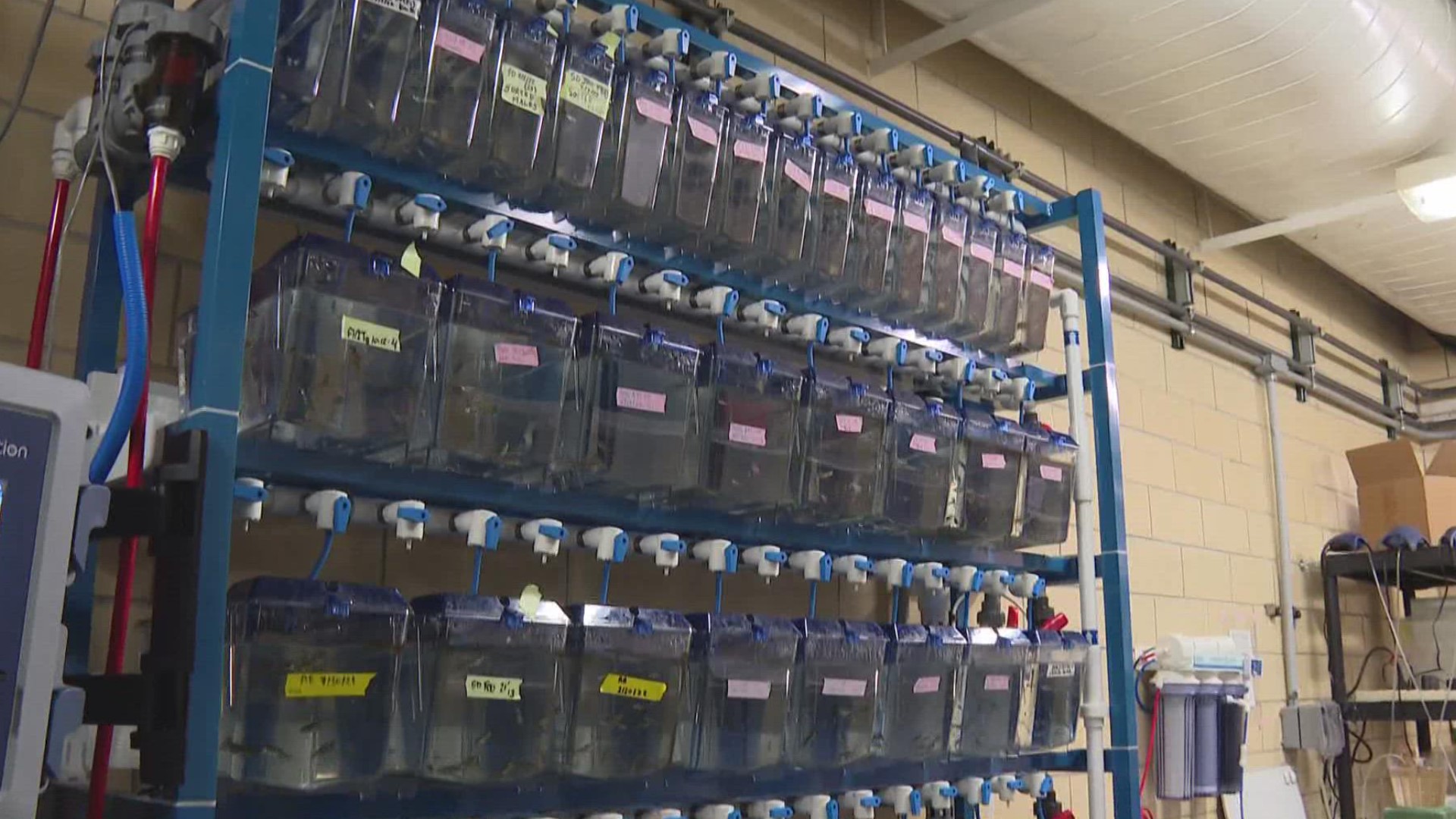WEST LAFAYETTE, Ind. — A group of more than 4,000 toxic chemicals has made its way to our environment, and researchers say it's not going away anytime soon.
PFAS, also known as per- and polyfluoroalkyl substances, have historically been used in consumer products, according to Purdue University Professor of Toxicology Dr. Jennifer Freeman.
Freeman said PFAS often serve as great chemical properties for water resistance and stain resistance. She said they are also used in nonstick products, like pots and pans.
"We make advances in technology all the time, and it's wonderful because they are convenient to our life," Freeman said. "They create new ways that we can complete things and more efficiently and economically."
The problem is, according to Freeman, PFAS don't break down in the environment, and they stick around for a very long time — that's why they are often referred to as "forever chemicals."
Freeman said there are two PFAS that are well-known and well-researched: PFOA and PFOS. The good news, Freeman said, is those two compounds are no longer in the American marketplace.
"They've been removed from commerce, but since they are persistent in the environment, they are still there," Freeman said. "They still show up in about 98% of human blood that's been tested, so they're in all of us."
When it comes to the environment, Freeman said PFAS can be found in soil and water samples. With more than 4,000 chemicals classified as PFAS, researchers must ask a list of endless questions.
"There is constant new information coming out, almost every day, about new regulations or new ideas for regulations because they are not yet regulated in our drinking water," Freeman said. "That's still being reviewed and discussed."
Freeman said a conversation around regulations is needed due to potential health risks caused by PFAS. Research shows those chemicals can cause adverse health outcomes, like cancer, thyroid diseases, kidney issues, and immune system issues.
"With these chemicals, we are talking about parts per trillion," Freeman said.
"That is also a consideration, because of what small amount has been associated with adverse health outcomes."
Freeman said some Hoosiers may be more at risk than others.
"One of the main places that a lot of these PFAS have been used historically are around any military bases or near any firefighting practice facilities because they are used in firefighting foams," Freeman said. "They have made their way into the soil or into ground water, and so they might still be there in those areas. If people are living in those areas, they might be at an increased risk of exposure."
A group of researchers at Purdue University is working to learn more about PFAS in Indiana as part of the new Institute for a Sustainable Future.
Freeman's research team is investigating all aspects of PFAS, including:
- Overall health concerns, like neurotoxicity and neurodegeneration
- Impact of exposure in early development and how it effects development in life
- Impact on native animals
- Collection of environmental samples in Indiana
- Development of new technology to conduct PFAS testing
- Creation of processes to break down PFAS
The goal of this research is to protect the health of all citizens, according to Freeman.
"Every researcher in environmental science and toxicology, that's our primary goal," Freeman said. "We want to protect the health of all the citizens."
According to research, potentially harmful level of PFAS exist in common items, including:
- Food packaging, like pizza boxes and microwave popcorn bags
- Stain-resistant cooking ware, textiles and furniture
- Water-resistant cooking ware, textiles and furniture
- Soil and drinking water
Freeman suggests Hoosiers take a few steps to prevent exposure:
- Look for products labeled "PFAS Free."
- Avoid stain-resistant and water-resistant products, if possible.
- Choose carefully when going out to eat, and be aware of what is used in to-go containers.
- Install a water filter. Choose one that can filter PFAS.
- Do your research. Look up your go-to brand or company to see if they have a chemical policy statement.

